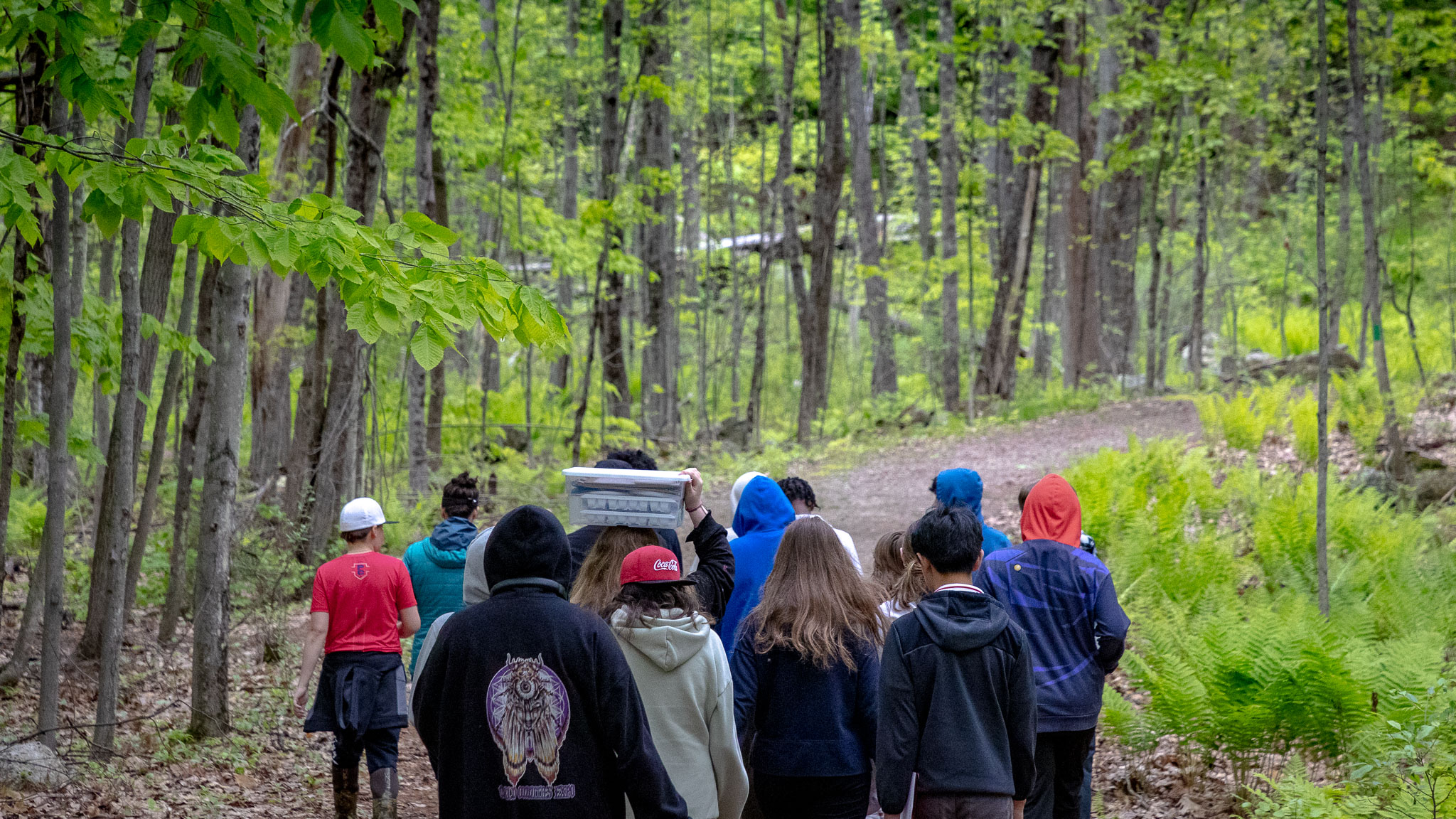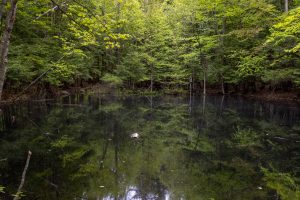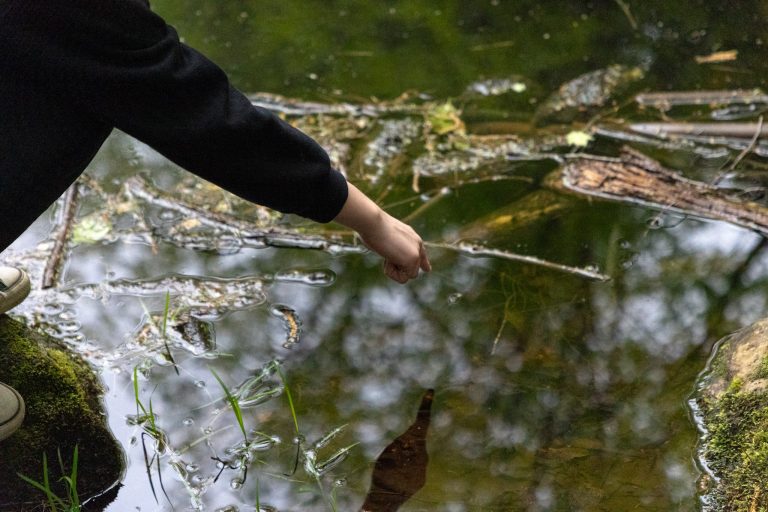
Engaging Maine classrooms with environmental research
By Nathan Deveney, Media Intern
This spring, approximately 300 students at Lewiston Middle School participated in field investigations of a local ecosystem. The seventh graders surveyed three vernal pools in the Thorncrag Bird Sanctuary in Lewiston, Maine documenting the presence or absence of different indicator species including caddisflies, fairy shrimp and amphibian egg masses. Vernal pools are seasonal freshwater pools integral to forest ecosystems, providing habitat and food sources for many organisms. These ephemeral habitats are increasingly threatened by changing climates, and student surveys of these ecosystems are critical to vernal pool research and protection. Lewiston Middle School students collected over 1,470 data points from Thorncrag this spring, adding to a longitudinal database of vernal pool data collected by youth across Maine and the northeastern United States as part of GMRI’s community science program. The data collected by students will support researchers in finding new patterns and tracking changes within these vital ecosystems.
Such efforts to engage students and teachers in authentic science inquiry are part of the NSF EPSCoR E-CORE RII Maine-SMART program and led by the Gulf of Maine Research Institute (GMRI) through their Learning Sciences Lab with support from GMRI’s long standing community science program, the Ecosystem Investigation Network. Connecting research and practice, GMRI’s empirically tested community science curriculum engages students in investigations of authentic questions about local ecologies through a combination of field work and scientific modeling, and introduces students to critical ideas in science including reasoning about variability and managing uncertainty.
Underserved communities often face difficulties accessing high quality science learning due to a number of barriers beyond their control. GMRI, in partnership with Lewiston and with support from Maine-SMART, is helping to reduce material and professional barriers by providing staffing support, materials to support investigations and professional education for Lewiston teachers.
“Opportunities to engage in field science around locally relevant questions like those studied as part of GMRI’s vernal pool curriculum immediately put students in the role of knowledge producer and critic, potentially transforming their perspectives on science, both what it looks like and who gets to participate,” explained Amanda Dickes, a learning scientist who runs the Learning Sciences Lab and is a PI on Maine-SMART. Expanding access to these opportunities to youth across the state allows students to see themselves participating in locally relevant scientific research, helping to empower them both as learners and budding researchers. This is especially important as the emphasis on mathematics and literacy instruction in K-6 classrooms often means that science instruction takes a back foot in school curricula, not being formally introduced until the middle grades in some districts.
GMRI’s partnership with Lewiston Middle School is part of a larger effort by Maine-SMART to bring K-12 students and teachers together with professional scientists and researchers to elevate science learning. Lewiston Middle School provided the inaugural class of student-scientists during the first year of Maine-SMART. For future project years, the goal is to expand this work to the Portland Public School system.
Working in conjunction with GMRI, Maine-SMART hopes to shift the way science is taught in Maine’s communities, bringing authentic science opportunities to students that connect them with research already happening in their communities. Nurturing the next generation of scientists and researchers is essential to Maine’s future as many will, whether formally or informally, become stewards of the state’s natural resources.


